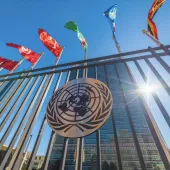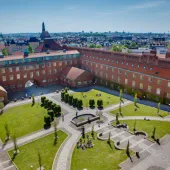Nynas host inaugural bitumen forum
The first Nynas bitumen forum was held in September at the Royal Society in London. The event gathered maintenance contractors and government highways engineers to discuss the latest issues within the asphalt materials sector. Special focus was given to creating sustainable value and asset performance through effective pavement design.
Jim Christie welcomed attendees to the day’s events, which were chaired by Stephen Child, an independent consultant and former highway group manager of Surrey County Council. The main feature of the day was a trio of talks delivered by Alan Strong, senior lecturer in environmental engineering at the University of Ulster; Alex Jan, associate director of Arup; and Trevor Bradbury, consultant at the Transport Research Laboratory.
Topics discussed during the lectures and interactive question and answer session included an economic view of the UK’s road infrastructure and a European perspective, sustainability and climate change, and an assessment of the whole-life cost benefits of new asphalt binders. Stephen Child summarized his experience: ‘The topics are extremely current, especially when looking at climate change and funding. I think the mixture of high level discussions about strategies and the detailed, technical product comparisons is really useful.’
Brent Wilson, UK bitumen marcoms for Nynas, helped to organize the forum. He explained the importance of opening up dialogue through such events: ‘By choosing important issues facing the highways industry – sustainability, pavement design and environmental challenges – we hoped to stimulate discussion with key personnel to identify important areas which the highways industry needs to champion with politicians and the public.
‘Nynas plan to build on the success of the forum to host similar sessions in the future. The forum will become a platform for all stakeholders to learn about and share perspectives on the changing landscape of the asphalt industry. Suggestions for key topics to be discussed and debated are welcomed.’









